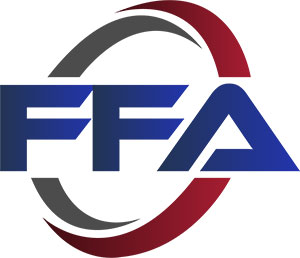In truth, it’s not always such a bad thing to eat some extra sugar in recovery. Allowing yourself to indulge in sugary snacks can help you stay sober—especially in the early days of recovery. However, relying on sweet treats to curb your alcohol intake should only be a temporary solution, not a long-term one. A separate study done and presented at the 9th ISBRA Congress showed support for an association between sweets and a genetic predisposition for alcoholism and a family history. In the study 61 percent of individuals with a positive family history of alcoholism preferred sugar solutions. This is extremely high compared to the 19 percent of individuals who preferred sugar solutions and who reported no known negative family or genetic histories of alcoholism.
- Combining medication with therapy and other interventions can prove even more helpful than medication alone.
- Don’t forget, you can ask questions anytime, and we’ll do our best to find the right expert to point you in the right direction.
- Connecting with family and friends, attending support groups, and talking to a therapist can all help to provide a sense of comfort and support during the recovery process.
- Studies show that alcoholism is at least partially hereditary, and this may also be true of sugar addiction.
- People with severe alcohol use disorders can consume more than 50% of their calorie intake through alcohol alone¹, leaving them at significant risk for nutrient deficiency.
Coping tips can absolutely offer short-term solutions when you’re trying to cut back on alcohol. That said, permanently changing your relationship with alcohol may require a more in-depth approach. But in spite of your goals and no matter how committed you are to changing your habits around drinking, avoiding alcohol might prove a little more difficult than you expected. In addition, alcohol prevents the liver from releasing glucose.
How to overcome sugar cravings, without turning back to alcohol.
For those with a serious alcohol problem, it was a worthy decision, maybe even a lifesaving one. It could even be fun, when it wasn’t all amends and affirmations. At the end of the day, just remember you don’t have to run the course alone — connecting with a therapist or joining a recovery program can make all the difference. Therapy, medication, and recovery programs can all have benefit for reducing and preventing cravings. Combining medication with therapy and other interventions can prove even more helpful than medication alone.
However, it is important to maintain proper nutrition throughout and after rehab, so as to ensure a successful recovery. Nonetheless, managing sugar cravings is by no means impossible. Addiction treatment needs to account for such hardships and can often tackle them effectively. In brief, there are three main ways to do so, each with its own subsections. Lean meat, seafood, eggs, tofu, edamame, tempeh, beans, nuts, hummus, seeds, almond butter.. (However a mix of both is ideal!) Protein can keep you satisfied throughout the day and provides amino acids to help combat cravings.
Managing Sugar Cravings After Opioid Use
As you can see, the unique connection between alcohol and sugar cannot be underestimated. It is deeply rooted in both substances, and largely explains just why recovering alcoholics crave sugar. Moreover, it can cause complications throughout and after recovery, especially if it overlaps with eating disorders or mental health disorders. At some point and time, everyone craves a bit of sugar here and there.
Sugar tastes great, and eating or drinking it is rewarding since it causes dopamine release. When you drink alcohol, your liver becomes preoccupied with metabolizing alcohol. While it’s focused on this, it cannot release enough glucose into why do alcoholics crave sugar the bloodstream. Alcohol is naturally obtained by fermenting sugar, which is why alcohol and sugar trigger similar reactions in the brain. Sugar is similar to alcohol in the sense that it can become addictive if consumed too often.
Substance Abuse Treatment
Whether you’re a huge body builder or on a strict vegan diet, sugary foods are all around and easy to tempt the mind. But, it seems that individuals recovering from alcohol abuse tend to crave sweets just a bit more than the average person. There are plenty of reasons that explain this occurrence, and it’s something that many drug and alcohol treatment services plan around. While sugar cravings might make you feel good initially, read on to learn why they aren’t always good for recovering alcoholics. Alcoholism affects many different parts of the body, and one of the most common symptoms is a craving for sugar. This is because alcohol disrupts the body’s ability to regulate blood sugar, leading the body to believe it needs more sugar to function properly.
- Ms. Bandrovschi runs Listen Bar, an alcohol-free bar open one night a month downstairs at Von, a bar on Bleecker Street in Manhattan.
- Over time, alcohol use begins to affect the neurotransmitters, or chemical messengers, in your brain.
- When struggling with hypoglycemia, you’re left with symptoms like irritability, aggression, headaches, dizziness, confusion, lack of concentration and impulsive decision-making.
- Excessive caffeine intake can actually increase sugar cravings due to fluctuations in blood sugars and dehydration.


